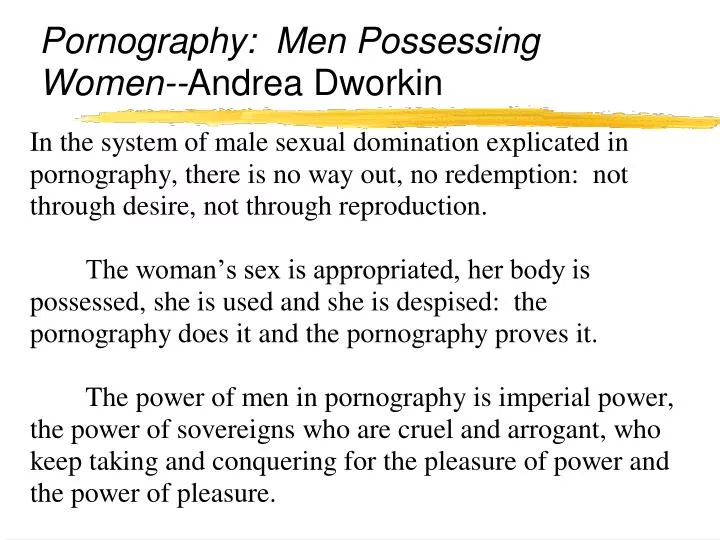

My objection is to Dworkin’s recommendation that we dispense with considering what an individual work of pornography says about the actions happening within it. There is much to challenge in this thinking, not least its denigration of sex work, but also its lack of precision, its unsubstantiated view that all pornography celebrates the extreme subjugation of women. Dworkin’s indictment is so sweeping that she claims pornography, from Greek antiquity to her present, levelled all women to the same status, making them into the ‘lowest class of whore’, the ‘brothel slut available to all male citizens’. The actions captured in pornography convey more than they seem to – as all cultural works do. It can urge people to consider sex from multiple perspectives and think about how it shapes our regard for other people. Having spent years in library archives reading obscene works, I’ve found that pornography says many things at once. The recognition of these patterns led many feminists to deduce that pornography promotes – that it desires and celebrates – the denigration of women. Often – but, crucially, not always and not uniformly – this interplay entails hierarchy: demands are issued, often by men actions are coerced, often by men body parts are pushed or positioned or operationalised, often by men. With such conditions informing pornography and its consumers, sex becomes a stage for the mingling of persons. Social dynamics like misogyny, heteronormativity, xenophobia and racism shape these collisions. Displaying genital action, hardcore pornography – especially the visual kind that became popular during feminism’s second wave – shows to an unusual degree the ways that sexed bodies collide. She insisted that we examine and take seriously what pornography shows us: its documenting of the sexual use of women’s bodies, as well as men’s consolidation of their ‘social power’. On such grounds, Dworkin, together with Catharine MacKinnon, objected to pornography’s constitutional protection as free speech, and proposed legislation to ban it, alleging it did not say or represent the degradation of women, but concretised and performed it, made it real.ĭworkin’s contributions to feminist thinking about pornography are radical and profound. Andrea Dworkin put forth this view in Pornography: Men Possessing Women (1981), where she defined the genre as ‘the blueprint of male supremacy … the fundamentalism of male dominance … the essential sexuality of male power’. Across at least five decades, from Susan Brownmiller to Gail Dines, some feminists have denounced pornography for enacting and inciting violence against women, making its viewers into psychologically inert consumers or, worse, sexual aggressors.


 0 kommentar(er)
0 kommentar(er)
